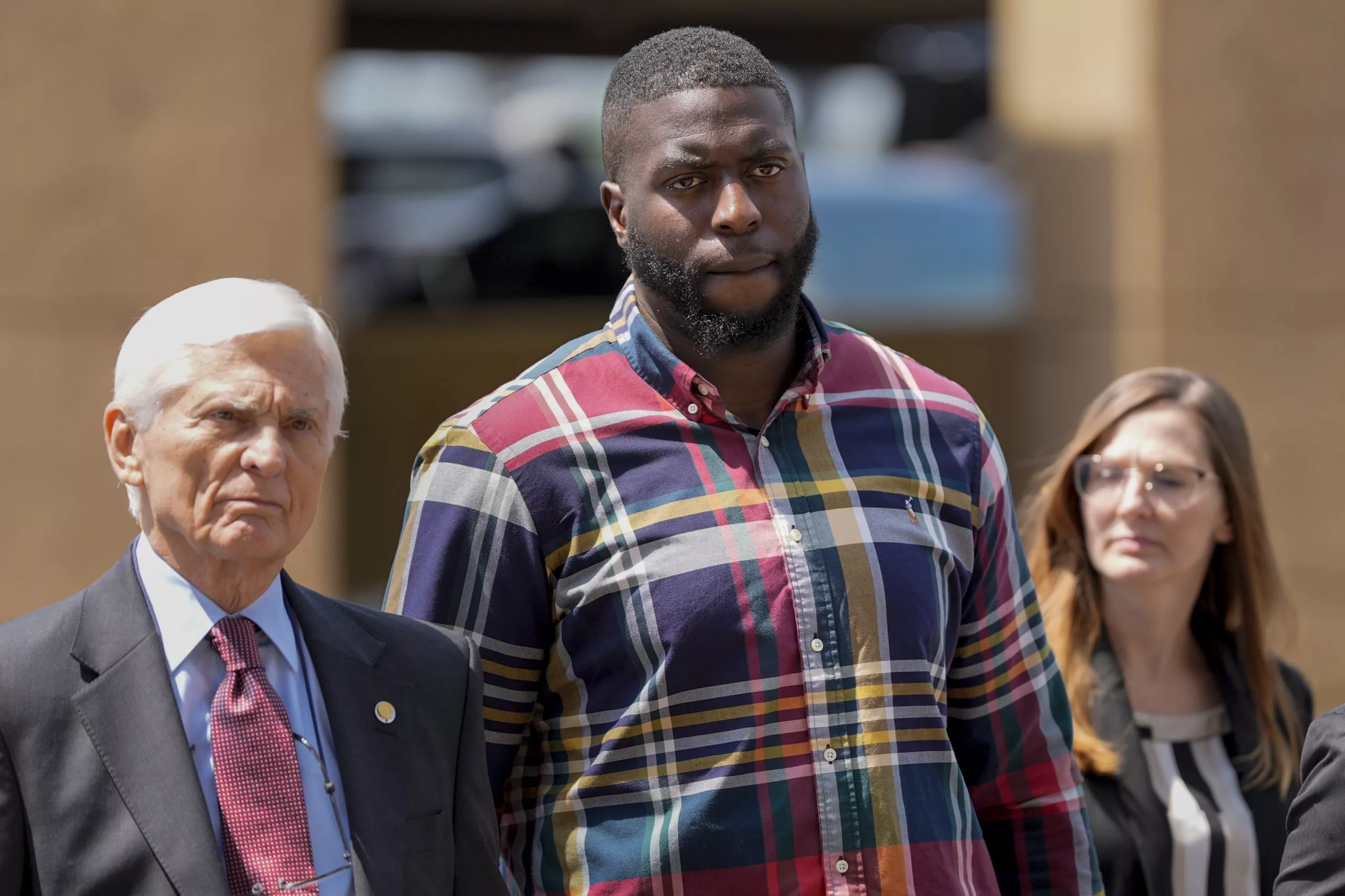MEMPHIS, Tenn. (AP) — Tyre Nichols posed no threat to police when he was snatched out of his car during a traffic stop that preceded a fatal beating by five Memphis officers, according to testimony Monday by a former officer who has pleaded guilty in the case, which led to national protests and sparked renewed calls for police reform.
Emmitt Martin III took the stand in the federal trial of former colleagues Tadarrius Bean, Demetrius Haley and Justin Smith. The three officers have pleaded not guilty to charges that they deprived Nichols of his civil rights through excessive force and failure to intervene, and obstructed justice through witness tampering.
The four men, along with fellow officer Desmond Mills Jr., were fired after the January 2023 death of Nichols. The beating was caught on police video, which was released to the public. The officers were later indicted by a federal grand jury. Martin and Mills have taken plea deals and are testifying against the other officers.
For the first time in the trial, jurors heard from one of the officers who beat Nichols. Martin said he and his former colleagues — members of the Scorpion Unit, a Memphis police team that looked for drugs, illegal guns and violent criminals — would justify the force they used against a person by exaggerating the person’s actions against them. The unit was disbanded shortly after Nichols’ death.
Martin said he saw Nichols speed up to beat a red light and then change lanes without signaling, leading Martin to follow Nichols with his police car lights on. Haley eventually stopped Nichols’ Nissan, pulled out his gun and snatched Nichols from his vehicle without telling Nichols why he was stopped.
Martin also had his gun out, and joined Haley in trying to restrain Nichols while yelling various conflicting commands, such as telling Nichols to give the officers his hands, turn on his stomach and put his hands behind his back.
Meanwhile, Nichols was passively resisting the officers in a non-aggressive manner — by pulling his hands away from the officers, who were trying to handcuff him without telling him why, Martin said.
“He wasn’t a threat,” Martin said.
Nichols, who was Black, was pepper sprayed and hit with a stun gun during the traffic stop, but he was able to run away, police video shows. The five officers, who also are Black, caught up with Nichols and punched him, kicked him, and hit him with a police baton just steps from his home, as he called out for his mother.
Video also shows the officers milling about and talking as Nichols struggles with his injuries. Nichols died Jan. 10, 2023, three days after the beating.
During her opening statements, prosecutor Elizabeth Rogers told jurors that the attack was punishment because Nichols tried to run away — known as a “run tax” in police slang.
Martin said that if someone runs from his team, “you get your ass beat.” Martin also added that he and his team would justify using force against a person “if we exaggerate what they did” during the arrest. The officers are accused with lying on forms in which they must describe the force they used against a person.
Martin also acknowledged that Memphis officers are not trained to punch or kick people to handcuffed them, and that officers have a duty to intervene if other officers use unnecessary, unreasonable force. Those policy violations could result in the officers being fired and face criminal charges, Martin said.
Earlier Monday, defense attorneys tried to poke holes in officer training practices and policies while questioning Lt. Larnce Wright, who trained all five officers and testified about use of force, handcuffing and other techniques.
Wright testified about the distinction between active and passive resistance, saying passive resistance is when a person won’t give officers their hands to be handcuffed by pulling away, while active resistance is fighting officers with punches and kicks.
Martin Zummach, Smith’s lawyer, asked Wright where in the police department’s lengthy training manual the definition of active or passive resistance is listed. Wright acknowledged that those definitions are not written down in the manual.
Wright also testified that handcuffs can be used as a deadly weapon. Officers struggled to handcuff Nichols, and Zummach noted that Smith managed to get one handcuff on Nichols and was trying to get another on him.
Zummach posed a question to Wright: If a suspect pulls away one handcuffed hand from an officer, can it be used as a deadly weapon, and could lethal force be used? Wright said it could.
“Until a suspect is handcuffed, no one is safe. Do you agree with that?” Zummach asked. Wright said, “Yes.”
Kevin Whitmore, Bean’s lawyer, asked Wright if officers are trained to “stay in the fight” until they have handcuffed and arrested someone. Wright said they are.
“It’s a dirty job,” Wright said.
Wright began testifying Thursday, when he said the officers should have used armbars, wrist locks and other soft hands tactics to restrain Nichols.
An autopsy report shows Nichols — the father of a boy who is now 7 — died from blows to the head. The report describes brain injuries, and cuts and bruises on his head and other areas.
The five officers also have been charged with second-degree murder in state court, where they pleaded not guilty, although Mills and Martin are expected to change their pleas. A trial date in state court has not been set.
___
Associated Press reporter Jonathan Mattise contributed from Nashville, Tennessee.
Brought to you by www.srnnews.com







